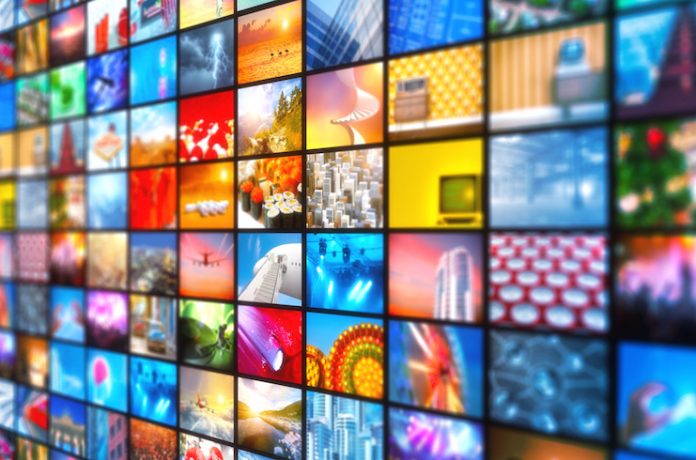
Standard cable television and WiFi are no longer enough when it comes to meeting guests’ expectations for in-room entertainment. Typically arriving with numerous devices including laptops, tablets, and, of course, smartphones, many guests want the sophisticated digital entertainment experience they enjoy at home to continue in their hotel rooms. That offering can be a differentiator, leading guests to choose one property over another. Discussing this evolution in guests’ preferences are Kimberly Twiggs, assistant vice president, business development, DirecTV; Joe King, vice president of hospitality, Philips TV; and Kris Singleton, senior vice president, DISH Business.
A Matter of Choice
King recalls, “There was a time when people could get an entertainment experience at hotels that they couldn’t get at home, like free HBO and dozens of cable channels. But from an entertainment standpoint, today you’re almost taking a step backwards.” It is his main contention that today’s hotel guests want to be able to duplicate the experience they get in their own homes, which is the ability to view their own content without being limited to their own devices. “I’ve spent too much time in hotel rooms watching on my iPad what I’d rather be watching on a 55-inch or 65-inch television,” observes King, speaking from his own experience as a road warrior who has already spent 140 nights in hotels this year.
A recent DirecTV-commissioned survey of 1,200 U.S. consumers who stay in hotels three or more nights per year reveals that guests desire an at-home experience, including more traditional content on hotel televisions. According to the survey, 88 percent watch live television when traveling, and 75 percent “would choose one hotel over another if it offered easy access to local, live, and on-demand TV and music,” Twiggs says. Personalized and flexible in-room entertainment options are key. “Guests crave the choice of either watching live TV or having the option to stream their own content, because it allows them to conduct their stay on their terms,” she adds. “Capabilities like controlling the TV using their own devices and casting the content of their choice are here to stay.”
Furthermore, these expectations are not restricted to guests of hotels higher on the chain scale. “Whether it’s a two-star property or a four-star property,” says King, “they all still want to watch their own content, although that content may differ from one [property type] to the next.” For example, he says, those at a resort or more leisure-type property may tend to watch movies, while a guest at a two-star typical business hotel may prefer a basketball game. In some cases, differences in content preferences are based on region or industry. “In the casino industry, specifically Las Vegas, we see high demand for international content and a wider variety of sports,” Singleton says.
The Right Tech
Among the tech elements most important to meeting guests’ in-room entertainment needs and expectations are the following:
Strong WiFi: Twiggs calls connectivity “the foundation of meeting guest needs—whether that’s for entertainment consumption or other purposes.” However, about 20 percent of respondents to the aforementioned DirecTV-commissioned survey found in-room WiFi speed inadequate for their needs or desires.
Content streaming: According to a June 2022 Hotel Internet Services study, content streaming ability is currently more important to guests than video-on-demand services, which require payment. King explains, “People who pay for streaming don’t want to pay for something at a hotel they can get at home for free.”
High definition: The consensus is that standard definition (SD), the base level of 480 pixels in a single image used for many years now, no longer cuts it. High definition, ranging from 720 (HD) to 1080 (full HD) pixels, is preferred, although it requires more bandwidth. Singleton calls HD an “expectation,” and King considers it essential to duplicating the at-home experience he says is so important. “We now expect the really strong, vibrant picture you get with high definition; it’s hard for us to go back.” He adds that 4K, which offers a picture four times sharper than standard HD, is being offered for some content, including sporting events and some Netflix content.
Costs and Benefits
Some hoteliers may struggle with costs associated with providing the technology needed to meet guests’ current entertainment expectations. Recognizing this potential challenge, Twiggs notes that DirecTV offers HD equipment subsidies to help offset the hardware costs associated with “bringing a premium in-room entertainment to guests,” such as its Advanced Entertainment Platform.
It should also be noted that the value of upgrading an in-room entertainment system can go beyond enhancing the entertainment experience. “Hoteliers are always looking for ways to enhance the stay, and many will leverage in-room TVs to eliminate friction and make it seamless for guests to do what they want, when they want,” Singleton says. The latest in-room TVs, for example, can support more dynamic marketing for the property, guest communications, and operations (e.g., enabling guests to opt in or out of services such as housekeeping). That functionality “helps properties more effectively manage limited resources and staff,” she points out.
The Pandemic’s Effect: Accelerating In-Room Entertainment Expectations
The pandemic brought about much change overall. Many touchless technologies, for example, have found a permanent place in property management and services. Lingering effects also include the desire—in many cases, the need—for in-room connectivity that supports guests’ work as well as play.
Kris Singleton, senior vice president, DISH Business, traces “an expectation of choice” across different types of travelers to the pandemic. “They still want to see the same capabilities and flexibilities that hotels delivered because of COVID—like hands-free touchless solutions—both in the room and in common areas,” she says.
On the entertainment front, quarantining at home likely led people to develop a taste for more robust digital entertainment, and many held on to that preference once traveling resumed. Joe King, vice president of hospitality with Philips TV, says there is no doubt that the pandemic increased the number of streaming services people subscribe to, for example. “I think people stuck at home just subscribed to more streaming services to find additional content. I myself went from having two streaming services to five,” he notes.











